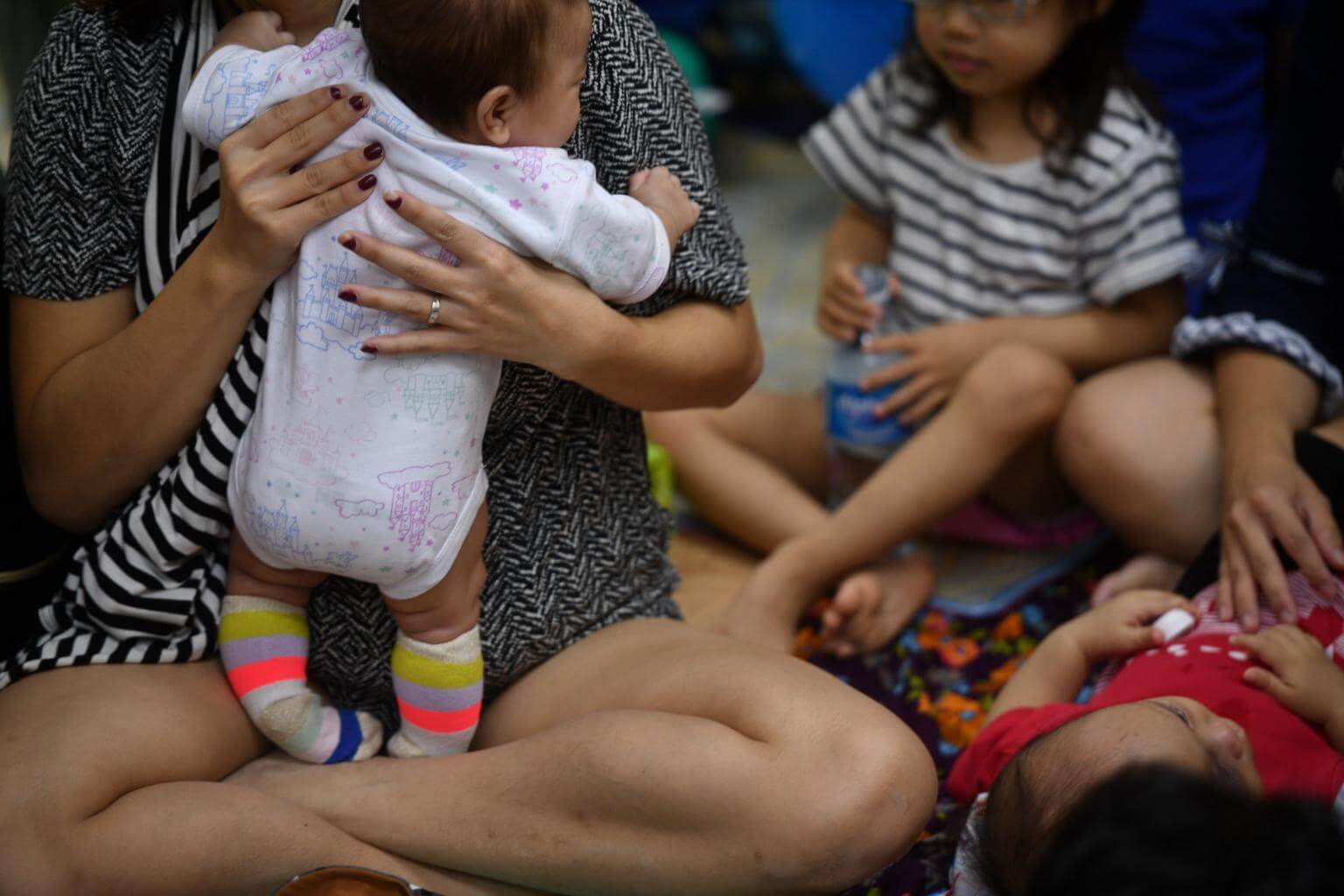Singapore's fertility rate down as number of singles goes up
Both genders see rising share of singles, but rate of increase for women far exceeds men's
Sign up now: Get ST's newsletters delivered to your inbox

Singapore's total population for the 12-month period ending in June this year rose to 5.64 million, a 0.5 per cent expansion that is an improvement on the previous period's 0.1 per cent.
PHOTO: ST FILE
Fewer Singaporean women tied the knot last year compared with a decade ago, a shift experts say is the biggest cause for the country's low fertility rate.
The biggest proportion of women staying single is in the prime childbearing years of 25 to 29, according to the annual Population in Brief report released yesterday.
The uptrend coincides with Singapore's total fertility rate plunging to a seven-year low of 1.16 last year, down from 1.20 in 2016. For the population to replace itself without immigration, women need to have an average of 2.1 babies.
"Singleness rate is the most important reason fertility rate in Singapore is low because among those who get married, only 10 per cent do not have any children," said Professor Jean Yeung, director of the Centre for Family and Population Research.
But overall, Singapore's total population for the 12-month period ending in June this year rose to 5.64 million, a 0.5 per cent expansion that is an improvement on the previous period's 0.1 per cent, which was the lowest rate in a decade.
The increase, after taking into account factors such as death and immigration, is largely from 32,356 Singaporean births and 22,076 new citizens. But what made experts sit up is the growing share of singles across genders, with the rate of increase for women far exceeding that for men.
It is especially noticeable among women aged between 25 and 29, with the proportion rising from 60.9 per cent in 2007 to 68.1 per cent last year - a jump of 7.2 percentage points.
More older women remained unmarried as well: Those between 30 and 34 years went up 3.9 percentage points to 32.8 per cent, while those aged 40 to 44 climbed by 3.8 percentage points to 18.1 per cent.
Even among men, a bigger proportion in the 25 to 29 age group stayed single: Rising from 77.5 per cent a decade ago to 80.7 per cent last year.
In the 35 to 39 age group, the rise was 1.9 percentage points; that in the 40 to 44 age group was 0.3 point; and in the 45 to 49 group, it was 0.2 point.
Only the proportion in the 30 to 34 age group declined, dipping by 0.3 point to 40.5 per cent last year.
Senior research fellow Mathew Mathews of the Institute of Policy Studies said the stable proportion of single men is because they typically marry later.
Civil engineer Larry Liew, 29, gave another reason for men delaying marriage: "There is still ingrained pressure on men to establish their career and pay the bulk of family expenses. It is not very manly if you can't do that."
But for women, the major reason for staying single is that they no longer have to marry for economic survival, said experts.
"Like more than 100 other countries, more Singapore women are in tertiary educational institutions than men... Getting married is no longer a necessity," said Professor Jean Yeung, director of the Centre for Family and Population Research.
Other reasons include long work hours, the high cost of living and a relatively long wait for Housing Board flats, said experts.
Also, many women still get passed up for promotion or high positions because of motherhood.
"These are fundamental factors that young people consider when deciding whether to form a family or not. They need to be addressed if fertility rates are to be increased in Singapore," Prof Yeung said.
Another factor is the exorbitant spending on weddings, said Dr Mathews.
"Our culture has made it such that a wedding is an 'investment' to save for, because couples think they look bad if it is not grand enough. Elsewhere, people seldom delay weddings because they need to save for it," he said.
But 28-year-old investment analyst Ho Xing Xian said that staying single is not so much a choice as it is a case of being unable to find a suitable match.
"The idea that women put their careers first is only part of the story. The reality for me is that most of the good men are taken," she said.


